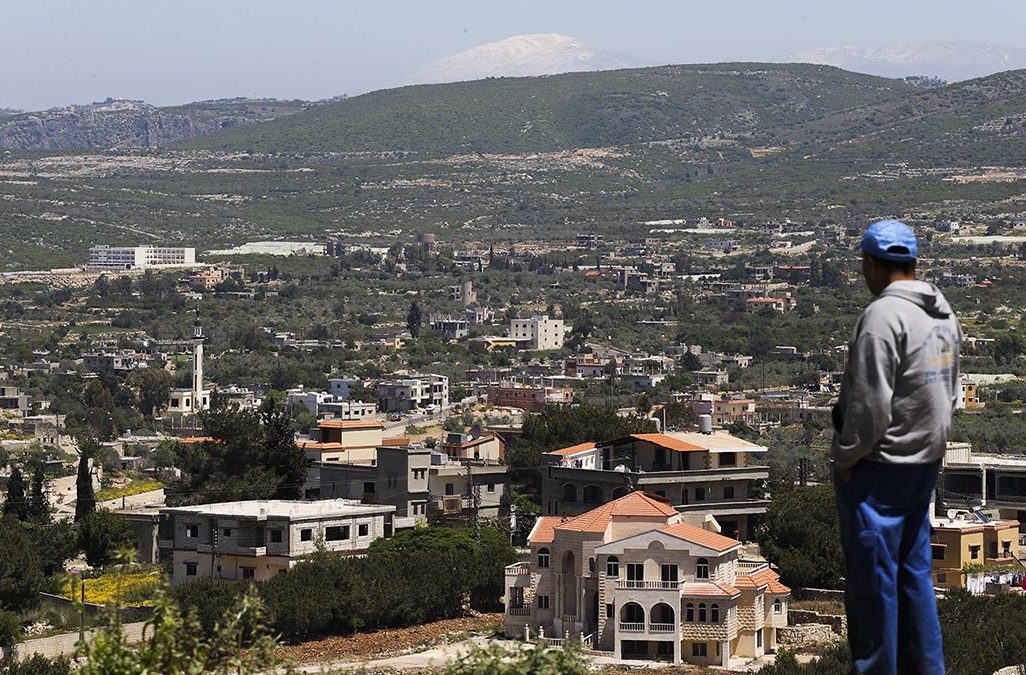
The 1,600 or so residents of the Bedouin village of Arab al-Aramshe, located near the border with Lebanon, have been displaced from their homes for the past five months amid frequent missile attacks. With Ramadan approaching, half of the population has decided to return to their village despite the ongoing security instructions and continuing violence. According to their accounts, they have received little support from the state.
Of the residents who have not returned to their village, some are still staying in the hotel in Nazareth that they were displaced to. A few others have tried their luck in finding temporary housing outside the hotel.
Community leader Adeb Mazal moves among the residents in Nazareth and back in Arab al-Aramshe and serves as a liaison between the village’s factions. The state funds the displaced families' stay in the hotel but little beyond that, Mazal told Davar. “Beyond that, they have nothing,” he said. “After two months, they could no longer hold out. There is no livelihood. People are unemployed.”

The state has announced that the hotel rooms will be covered until June. “Families are crammed into one and a half rooms,” he said.
Given the overcrowding, some residents have decided to rent an apartment instead, as permitted by the state. “There are no apartments,” Mazal explained. “Landlords want the entire grant. Rental prices have skyrocketed. One must ask why people returned to the village. They returned because they received no economic support.”
Even residents who have returned to the village face numerous challenges. “There is a significant economic challenge,” Mazal said. “Most of them are unemployed.”
Mazal explained that most residents work in the nearby industrial zone, about a half-hour drive from the village. Many of the factories have closed, so only the residents working in essential factories, which remain operational, are still working.
Many residents are therefore left without income, Mazal explained. An initial grant given during the evacuation has dried up. “At least they are at home, and they don’t have to deal with children seeing others buying sweets while they can’t because they have no money,” Mazal said. “Those who returned are the weakest layer that has no means to sustain themselves. They need support.”
Arab al-Aramshe has endured numerous recent missile strikes from Lebanon. In one incident, a military vehicle was hit.
Given the continuing violence from Lebanon, the village’s elementary school has not reopened. Mazal said that children have begun studying at schools in neighboring Arab villages such as Sheikh Danun and Mazra’a. There are no transportation services, so parents must drive their children the 25 minute trip each way, on a road exposed to Lebanese fire. “Midway through the journey, one could get hit by an anti-tank missile,” Mazal said.
According to Mazal, a small group of residents in the hotel insist on not returning to the village until the security threat is removed. “Unfortunately, before Ramadan, everyone will return home,” he said. “It’s very dangerous, but what can you tell people who don't have a penny?”
Mazal said that the state ought to compensate residents who have returned as well as those who remain displaced. “Our village is economically weak,” he said. “The state needs to consider that.”
The only governmental support, Mazal said, has come from the regional council of Mateh Asher, the governing body for Arab al-Aramshe, one other Arab village, and about 30 kibbutzim and other Jewish villages.
“Five months after the outbreak of the conflict, no senior government official has visited the community, neither in the village nor in the hotel, nor have any coalition members of Knesset,” Mazal said.
He noted that the community has been supported by the United Arab List party and received a visit from President Isaac Herzog.
The community is unprepared for the upcoming month of Ramadan. Mazal said that Arab al-Aramshe is the only Bedouin village currently displaced amid the war.
“The government does not intend to provide assistance,” Mazal said. “Many residents have lost faith in the government.”
He noted that during the Second Lebanon War, when the village was also evacuated, residents received consistent government support to buy groceries.
“I haven't heard a coalition member mention Arab al-Aramshe or show interest in us,” Mazal said. “What else can we do? There is no one to listen, and if they listen, they don't pay attention.”






